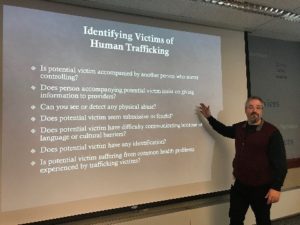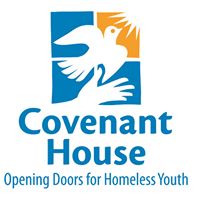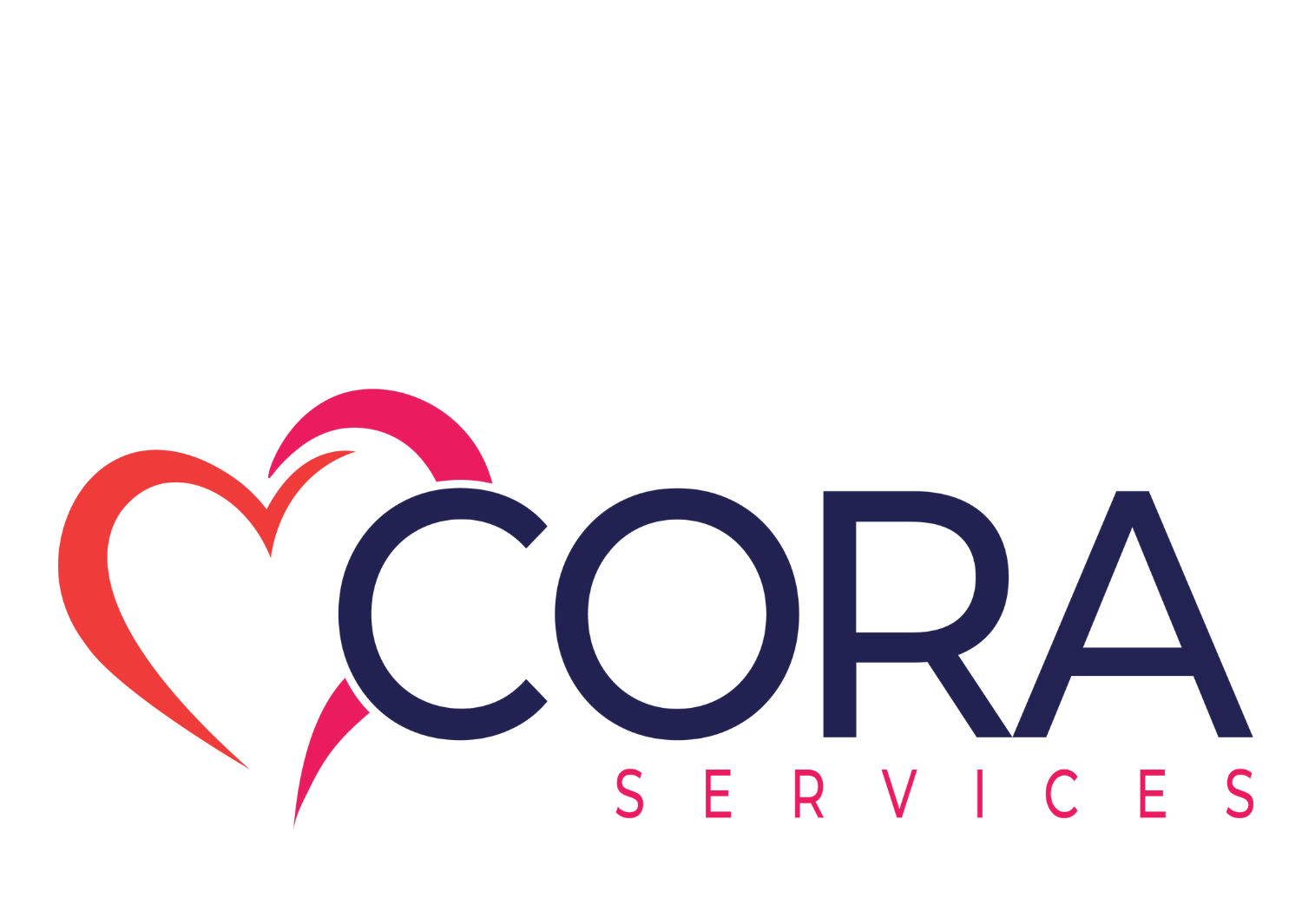 To help educate the community and bring awareness to the topic, because January is Human Trafficking Month, CORA services hosted a professional development entitled Working with Human Trafficking Victims. The training was held on Friday, January 18, 2019, at CORA’s Conference Center on 8540 Verree Road. Hugh Organ, M.S., the Associate Executive Director of Covenant House Pennsylvania, presented to an audience of educators, therapists, counselors and social workers on his experience on this topic. He has spent the last 18 years working with runaway, homeless and trafficked youth at the Covenant House in Philadelphia.
To help educate the community and bring awareness to the topic, because January is Human Trafficking Month, CORA services hosted a professional development entitled Working with Human Trafficking Victims. The training was held on Friday, January 18, 2019, at CORA’s Conference Center on 8540 Verree Road. Hugh Organ, M.S., the Associate Executive Director of Covenant House Pennsylvania, presented to an audience of educators, therapists, counselors and social workers on his experience on this topic. He has spent the last 18 years working with runaway, homeless and trafficked youth at the Covenant House in Philadelphia.
Human trafficking is not only an international problem, but one that exists in many of our own communities where we live and work. Communities need to be informed of trafficking indicators and learn to work collaboratively to identify high-risk areas and illegal businesses that exploit this population of people.
CORA asked 3 attendees to provide feedback on their training.
What made you choose this topic from the CORA Training Center?
I chose to attend the training on Human Trafficking at CORA to increase my knowledge of the subject and gain new insights on how to recognize victims. I have worked with vulnerable children and youth populations for 20 years and experienced many horrific situations. Currently, I am a social worker at Saint Christopher’s emergency room and a fulltime counselor at Little Flower High School for Girls.
- Rebecca Malfara, Little Flower High School
I have been attending CORA’s professional development programs for some time and most recently the topics have been impressive and timely. This workshop especially impressed me. It opened my eyes to the evilness of people and how they can exploit children, and make money from doing so. Being more aware of this subject and its warning signs make me feel more confident as a teacher and working with these children.
- Joe Burkheimer, CORA Elementary Educator
How does the topic of Human Trafficking impact you and the youth you work with?
Little Flower High School for Girls strives to provide a safe and academic environment for their students. But in reality, the high school community is surrounded by an impoverished neighborhood in North Philadelphia where much of the crime is both visible and rampant. Human trafficking victims are often hidden, forced to do hard labor and/or provide sex services. It occurs up and down Roosevelt Boulevard and neighboring areas in hotels, massage parlors and other businesses that appear to be legitimate…. and yet they are not.
- Kate Barker, CORA High School Counselor
Hugh Organ, from Covenant House, spoke directly and clearly and helped me understand some of these issues that children face such as discipline or lack of motivation. I learned to identify that there may be more going on than schools realize. I work with troubled children within the schools and I am now alerted and will have a raised level of awareness in some of the children I work with, especially knowing some might have more issues that are not at the surface.
- Joe Burkheimer, CORA Elementary Educator
Can you share some insights from the training that could help others?
Human Trafficking impacts men, women, children, teenagers – anyone can be a potential target or victim. Victims may be here illegally – completely dependent on their abuser. Their identification, social security cards, passports, etc. are taken away, leaving them powerless. They are desperate and surprisingly, they are often in love and have an unhealthy attachment to their trafficker. Traffickers target vulnerable youth, most specifically the homeless youth population. Not all victims are females. Males and the LGBTQ population are also at high risk for falling victim to traffickers.
- Kate Barker, CORA High School Counselor
The traffickers use psychological and emotional coercion to control their victims. The victim’s attachment to the trafficker can make it challenging to work with them and show them the true nature of their relationship to the trafficker. Counseling requires patience, a non-judgmental approach and continuous forward thinking about the client’s future.
- Rebecca Malfara, Social Worker at St. Christopher’s Hospital
Education about trafficking and open dialogues with children as well as monitoring social media accounts assist in the prevention of children and teenagers being trafficked. Parents, teachers and administrators need to be trained on new technology as much as possible to keep up.
- Joe Burkheimer, CORA Elementary Teacher
What are a few indicators of Human Trafficking in Philadelphia?
- No form of identification
- Fear of employers
- Signs of physical or mental abuse
- Not speaking for themselves
 Hugh Organ also oversees the day-to-day operations for a Street Outreach Program, York Drop-in Center, a 76-bed Crisis Shelter and 20-bed transitional living program. He is a founding member and the Chair of Philadelphia Anti Trafficking Coalition and serves as the Chair for the PA Anti Human Trafficking Advocacy Group.
Hugh Organ also oversees the day-to-day operations for a Street Outreach Program, York Drop-in Center, a 76-bed Crisis Shelter and 20-bed transitional living program. He is a founding member and the Chair of Philadelphia Anti Trafficking Coalition and serves as the Chair for the PA Anti Human Trafficking Advocacy Group.
To learn more information or to have a presentation at your organization, you can contact Hugh Organ at horgan@covenanthousepa.org or call 215-951-5411.
The Blue Campaign is the unified voice for the U.S. Department of Homeland Security’s (DHS) efforts to combat human trafficking. Working in collaboration with law enforcement, government, non-governmental and private organizations, the Blue Campaign strives to protect the basic right of freedom and to bring those who exploit human lives to justice.
Through the Blue Campaign, DHS raises public awareness about human trafficking, leveraging partnerships to educate the public to recognize human trafficking and report suspected instances. The Blue Campaign also offers training to law enforcement and others to increase detection and investigation of human trafficking, and to protect victims and bring suspected traffickers to justice. To view all available Blue Campaign resources, please visit our resources page. https://www.dhs.gov/blue-campaign
